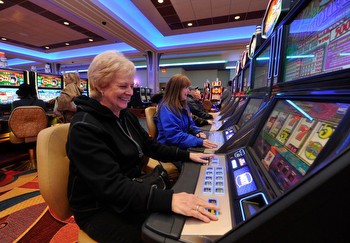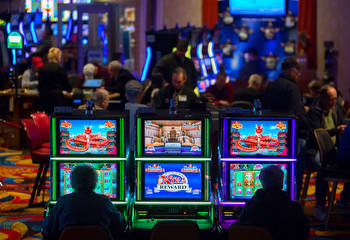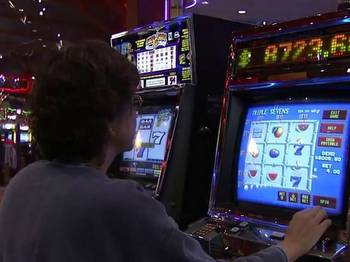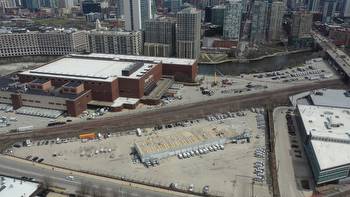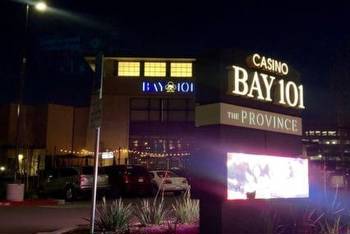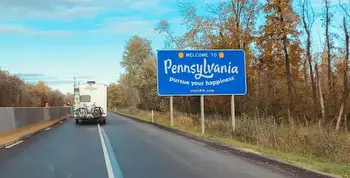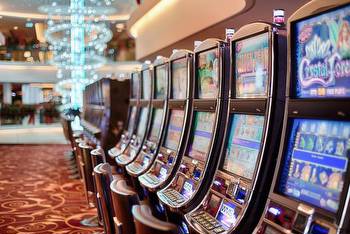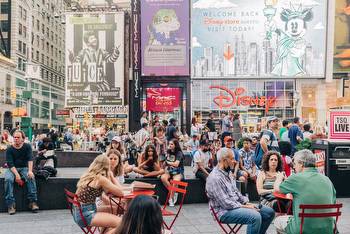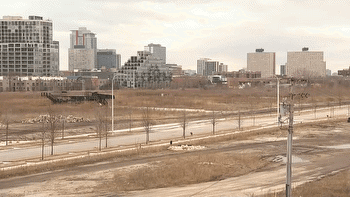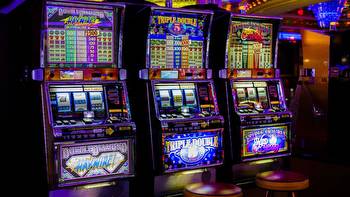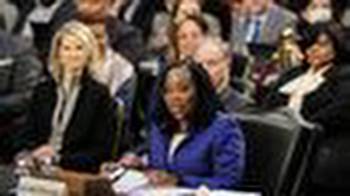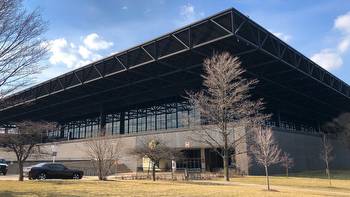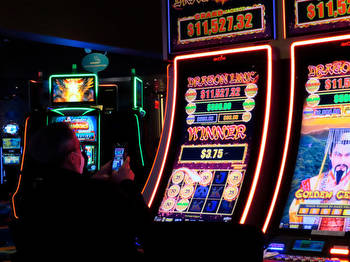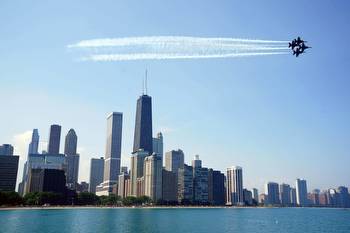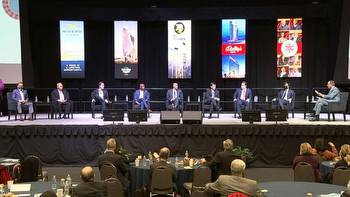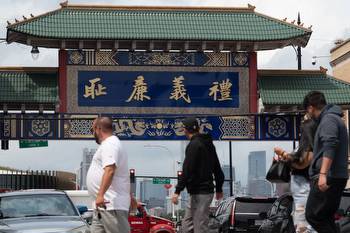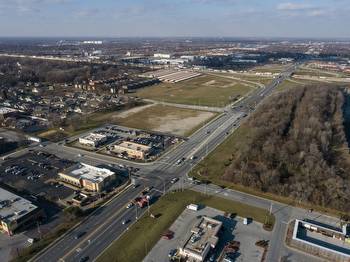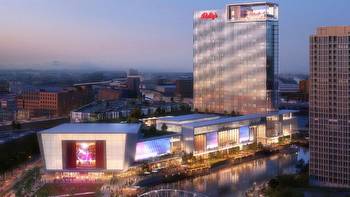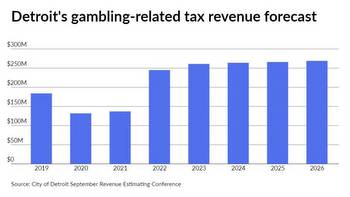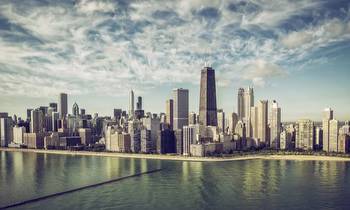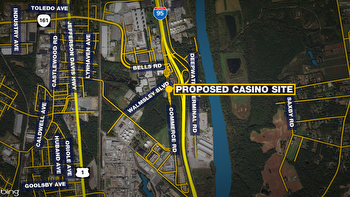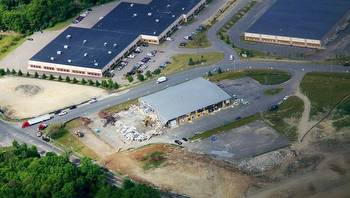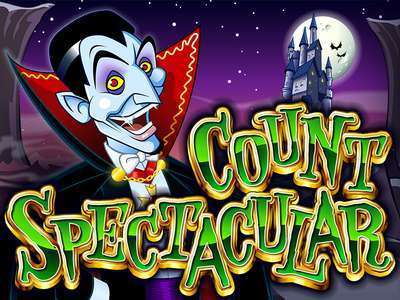New York Is Betting on Casinos to Help Its Economic Recovery. Can SF Cash In?

Jobs, tourists and billions in licensing fees and taxes after a devastating pandemic are why New York City government officials are eager to open new casinos.
With a metro population of 23 million, the Big Apple is the largest untapped market in the country for casino gambling, and developers are rushing for gaming licenses.
Meanwhile, in Downtown San Francisco, the bad news keeps coming.
Last week, Facebook abandoned 435,000 square feet of office space in a Fremont Street high-rise. And earlier this month, a new study ranked SF dead last in pandemic recovery of 62 North American cities, certifying the city’s bet on office space had unforeseen risk. Now, City Hall is preparing to make deep cuts to cover a projected budget shortfall of $728 million while also continuing to develop an economic recovery strategy.
San Francisco has a long history of vice. The city’s Barbary Coast past was rife with gambling. Las Vegas may owe San Francisco a debt of gratitude—if not a few games on the house—as the three-reel slot machine was invented here in the late 1800s. There’s a plaque at 406 Market St. in memory of the creator, Charles August Fey.
Yet modern San Francisco is the most restrictive county in the state.
In nearby Alameda and San Mateo counties, you can legally play the ponies or slip coins into slot machines. But in the City by the Bay, there isn’t a racetrack—anymore—or even off-track-betting. There’s no card room. There’s no tribal casino. The California Lottery and charitable bingo and poker games are all that a wagering person can legally play.
Tourism brings in millions of visitors every year, so a casino with stunning bay views would undoubtedly be a huge draw. Can San Francisco cash in?
Is Gambling a Serious Prospect?
Opening up gambling in the city has been a dream for decades.
The city’s racetracks may have been developed long ago—the most striking remnant is the oval-shaped street Urbano Drive on the site of Ingleside Racetrack. Yet San Francisco doesn’t even offer off-track betting.
In the mid-1990s, state Assembly Speaker and future Mayor Willie Brown authored a bill allowing off-track betting.
Both the San Francisco County Fair and Cow Palace attempted to open an off-track betting parlor in a Chinatown restaurant owned by the Fang family. Community opposition sank the bid.
Not long after, Brown campaigned for mayor on building a Monte Carlo-style casino on Treasure Island once the Navy relinquished control of the military base. Those roulette tables never materialized, either.
Although he may not have brought gambling to the city, Brown did bring an American gaming company to Asia in 2002 when he and the late Chinatown community leader Rose Pak helped secure a new Macao casino license for Vegas tycoon Steve Wynn.
Brown, when reached by phone, did not want to speculate what gambling would do for the city in the wake of Covid, saying he hadn’t considered it.
A call to the Office of Mayor London Breed was not returned. Ted Egan, the city’s chief economist, said he had never looked at what impact legalized gambling might make.
The Office of Economic and Workforce Development’s spokesperson said the Economic Recovery Task Force had not been approached with any casino proposals.
Don’t Bet on It
Aaron Peskin, president of the Board of Supervisors, said he didn’t think the city could open a casino even if there was the will—and that California and New York have different laws.
“San Francisco isn’t a federally recognized Native American tribe,” he quipped. Card rooms and off-track betting parlors would not be “good look for San Francisco.”
The Standard reached out to the American Indian Cultural District for comment.
Californians roundly turned down competing ballot measures in November that would have legalized sports betting either for tribal casinos or digital platforms. Last November, San Franciscans voted against Proposition 26, which would have expanded gambling options—roulette, dice and sports betting—on tribal lands, and Proposition 27, which would have legalized online sports betting.
Another consideration would be the timetable for developing a casino in a city notorious for its red tape.
The Planning Department’s Dan Sider said planners would need to better understand the opportunities and externalities that come with gambling.
“Many land uses have places where they fit particularly well—or poorly,” Sider said. “If this were to become a reality, and as we have with other novel land uses, we would likely create a regulatory framework that would establish appropriate zoning along with other controls.”
There’s nothing quite like zoning to dampen development.
After Brown, the most notable San Francisco official willing to try his luck on opening a casino was the former head of Public Works Mohammed Nuru—who was moonlighting as a developer.
Nuru was later enmeshed in the ongoing City Hall corruption scandal and pleaded guilty to a fraud charge. That criminal complaint revealed mysterious details about Nuru and restaurateur Nick Bovis’ plans to build a casino.
But Nuru is serving a seven-year prison sentence, so there will be no Bellagio-style fountain or Criss Angel residency in the Bay Area anytime soon.







